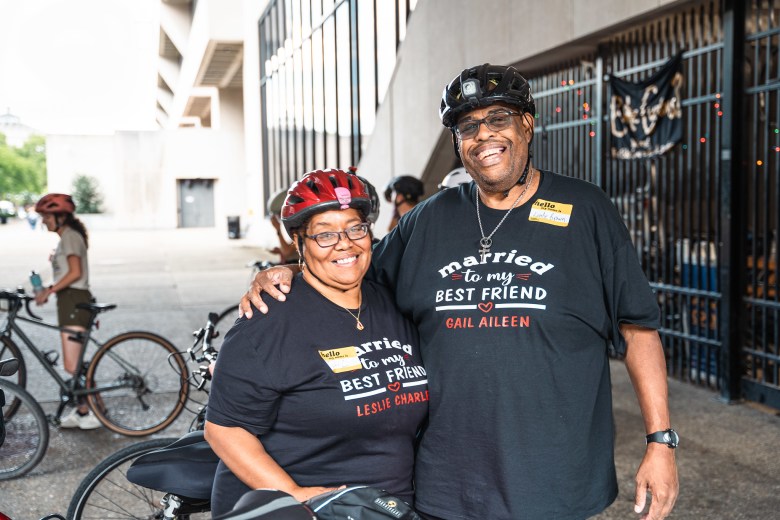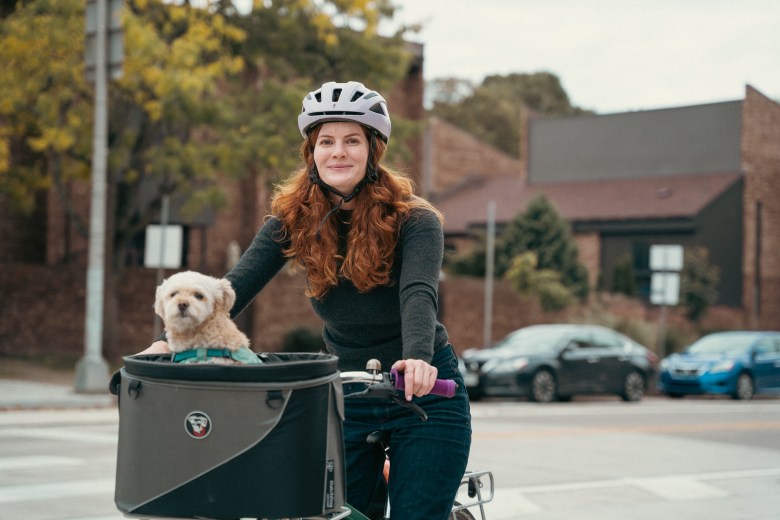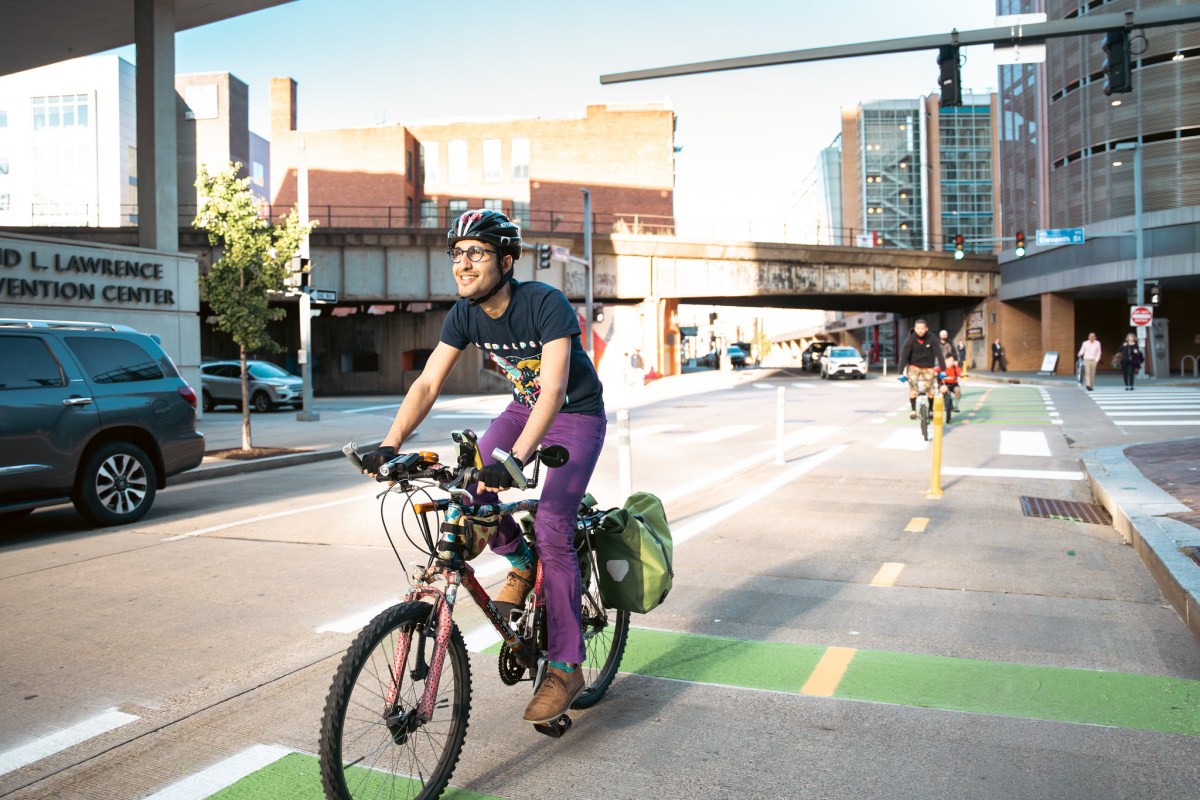When Armin Samii first moved to Pittsburgh in 2019, he looked forward to being able to get around town safely, without being dependent on a car. Street improvements that help residents navigate the city on a bike or on foot, such as bike lanes, traffic calming and intersection improvements, drew him to the city. For 31-year-old Samii, a startup founder, these components are critical in keeping life affordable and directly impact his well-being.
Bike Pittsburgh (BikePGH) has been working for 20 years to assert the right of Pittsburghers to safely walk and bike. The nonprofit’s proven record of success in advocating for safe street infrastructure provides a value to Samii and residents like him, and is an important component in maintaining and improving livability in Pittsburgh.
“Bike lanes keep me safe,” Samii stressed. “I make decisions on where to eat and where to shop based on whether there’s a safe route to get me there. I would not have moved to Pittsburgh without BikePGH’s decades of work.”
According to BikePGH, the existing street network is oriented toward driving and is considered incomplete until all abilities, modes, incomes, ages, genders and ethnicities have access to car-free transportation options.
Since 2002, BikePGH has been building Pittsburgh’s cycling community, providing resources and pushing for street designs that put people first. Working with the City of Pittsburgh has improved the bicycle and pedestrian network and institutionalized safer biking and walking.
Through MoveForwardPGH, BikePGH worked with the Department of Mobility and Infrastructure to kickstart the 2020 Bike(+) Plan and install new bike-friendly connections throughout the city, such as the Bloomfield/Friendship Neighborway and the South Side Neighborway. Without safe bike connections, people are at higher risk because bike facilities also act as traffic-calming functions to slow cars, which is the most effective way to reduce injuries and fatalities. Improvements like these are crucial in ensuring that people can access work, school and daily errands safely and affordably by bike or on foot.

Bicycle infrastructure isn’t just for people riding bikes, as it has been shown to reduce fatalities for all road users. Specifically in downtown Pittsburgh, a 104-month analysis shows that after the Penn Avenue bike lanes were installed, total crashes decreased by 26%, including a 32% reduction in pedestrian crashes.
In addition to physical infrastructure, cyclists and pedestrians need practical education to get to destinations safely. Homewood residents Leslie and Gail Brown look to BikePGH’s cycling education for improved health, confident commuting and recreation. As newer cyclists, BikePGH’s free and accessible educational resources helped to improve their skills in getting around on two wheels.
Having completed a Confident City Cycling class, Brown shared her experience: “I learned how to ride a bike appropriately as an adult and how to follow the safety protocols that are vastly different from the ones I learned growing up. I love the impact that this organization has on the Pittsburgh community.”

In addition to membership and outreach, community engagement at BikePGH also comes in the form of events like OpenStreetsPGH and PedalPGH. North Side resident Morgan O’Grady found a community in WMNBikePGH. The program’s annual camping trip has helped her explore her love of the great outdoors and introduced her to people who are also interested in learning new things through riding bikes.
“I learned I could easily bike camp and it wasn’t so hard and out of reach,” said O’Grady, a 34-year-old senior administrative coordinator for the Department of Physics at Carnegie Mellon University. “BikePGH made everything very easy. I also met some of my favorite people on this ride.”
BikePGH is sharing the stories of Pittsburghers to highlight the importance of people-first street planning. Anyone can have a direct impact on keeping Pittsburgh’s streets on the right track toward becoming safer and more accessible simply by donating to BikePGH or becoming a member.

This crucial work is not possible without the support of generous donors. The nonprofit is seeking to raise $50,000 by Dec. 31 and a donor match will also be active throughout this period. All donations directly support BikePGH’s ongoing advocacy, education and community programs.







